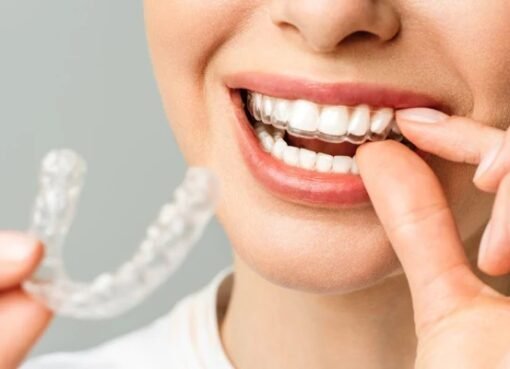Fighting Cavities: The Ultimate Guide to Preventive Oral Hygiene

Oral hygiene is a critical component of our daily routine. Caring for our teeth and gums doesn’t just contribute to a beautiful smile; it’s crucial for maintaining overall health. After all, a healthy mouth is a gateway to a healthy body.
In this in-depth guide, we’ll explore the ins and outs of preventive oral hygiene to help you ward off one of the most common dental afflictions: cavities.
Understanding Cavities
Cavities, also known as tooth decay, are permanently damaged areas in the hard surface of your teeth that develop into tiny openings or holes. They can arise due to various reasons, including bacteria in the mouth, frequent snacking, sugary drinks, and poor oral hygiene. Understanding cavities’ impact on oral health is the first step in preventing them.
Causes of Cavities
Cavities are fundamentally caused by tooth enamel erosion, which is the result of a process called demineralization. This occurs when acids in the mouth, produced by the combination of sugar and bacteria, erode the minerals in your teeth. Once the enamel is gone, the acids and bacteria can reach the next layer of your teeth, called dentin, which can lead to inflammation and infection.
Impact on Oral Health
Beyond being painful and unsightly, untreated cavities can lead to more serious dental complications, such as infections or abscesses. The infection can spread to other parts of the body if left unaddressed, affecting the heart and even the brain in severe cases. Thus, preventing cavities is not just about maintaining a good smile; it’s about safeguarding your overall health.
Effective Oral Hygiene Practices
Preventive oral hygiene is your first line of defense against cavities. It’s essential to develop and maintain good oral hygiene practices from an early age. The following techniques can significantly reduce your risk of developing cavities.
Brushing Techniques
Proper brushing technique is vital in removing plaque, a sticky film of bacteria that can lead to tooth decay if not cleaned properly. A common mistake is brushing too hard, which can erode enamel and damage gums over time. The recommended technique includes using a soft-bristled brush and gentle, circular motions to clean all surfaces of your teeth.
Flossing Importance
Flossing is often overlooked but is just as important as brushing. It cleans areas where your toothbrush can’t reach, such as between your teeth and under the gumline. Flossing at least once a day helps to remove plaque and food particles that can lead to cavities.
Mouthwash Benefits
Using an antibacterial mouthwash can complement your brushing and flossing routine by reducing the amount of bacteria in your mouth. However, not all mouthwashes are created equal, and it’s best to look for those with the ADA Seal of Acceptance, which ensures the product is safe and effective.
Dietary Considerations
What you eat has a significant impact on your oral health. Making the right dietary choices can help in cavity prevention, while certain foods can increase the risk of tooth decay.
Foods That Promote Healthy Teeth
Eating a balanced diet that includes plenty of fruits and vegetables, which contain essential vitamins and minerals for strong teeth and gums, is vital. Foods high in calcium, such as dairy products, contribute to repairing enamel and bones. Drinking water with fluoride can also help prevent cavities.
Foods to Avoid
Sugary and starchy foods can lead to cavities, as the bacteria in your mouth feed off these sugars and produce acids that attack the enamel. Limiting the intake of candies, pastries, and other sugary treats can greatly decrease the risk of tooth decay.
Dental Visits and Check-ups
Regular visits to the dentist in Portland, Maine or wherever you are located are a crucial part of cavity prevention. Dental professionals can identify and treat cavities in their earliest stages, preventing further damage to your teeth.
Importance of Regular Visits
The American Dental Association recommends visiting the dentist at least once every six months for a regular check-up and cleaning. During these visits, the dentist can provide professional cleaning and discuss your oral health, recommending personalized care to keep your teeth healthy.
Signs to Watch for
Sometimes, cavities can develop with no obvious symptoms, which is why regular check-ups are important. However, you should be aware of signs such as toothache, increased sensitivity to hot, cold, or sweet foods, or visible holes or pits in your teeth, which indicate that you should see a dentist as soon as possible.
Home Remedies and Products
There are several home remedies and oral hygiene products that can aid in cavity prevention. While these should not replace regular dental care, they can be beneficial additions to your daily routine.
Natural Remedies for Cavity Prevention
Certain natural remedies have demonstrated the ability to aid in cavity prevention. For example, oil pulling with coconut oil can reduce the amount of harmful bacteria in the mouth, and clove oil has been used for its analgesic and antibacterial properties.
Recommended Oral Hygiene Products
The market is flooded with oral hygiene products, so it’s crucial to choose those that are effective and safe. Look for toothpaste with fluoride, which is proven to strengthen enamel. For those with sensitive teeth, there are specialized toothpastes available. Consider an electric toothbrush, which is more effective at removing plaque than manual brushing.
Conclusion
Cavities are a common and preventable dental issue that can lead to more significant health problems if left untreated. By following the guidance in this ultimate guide to preventive oral hygiene, you can significantly reduce your risk of developing cavities and maintain a healthy, beautiful smile. Remember, the effort you put into your oral hygiene today can pay dividends in your future well-being.


